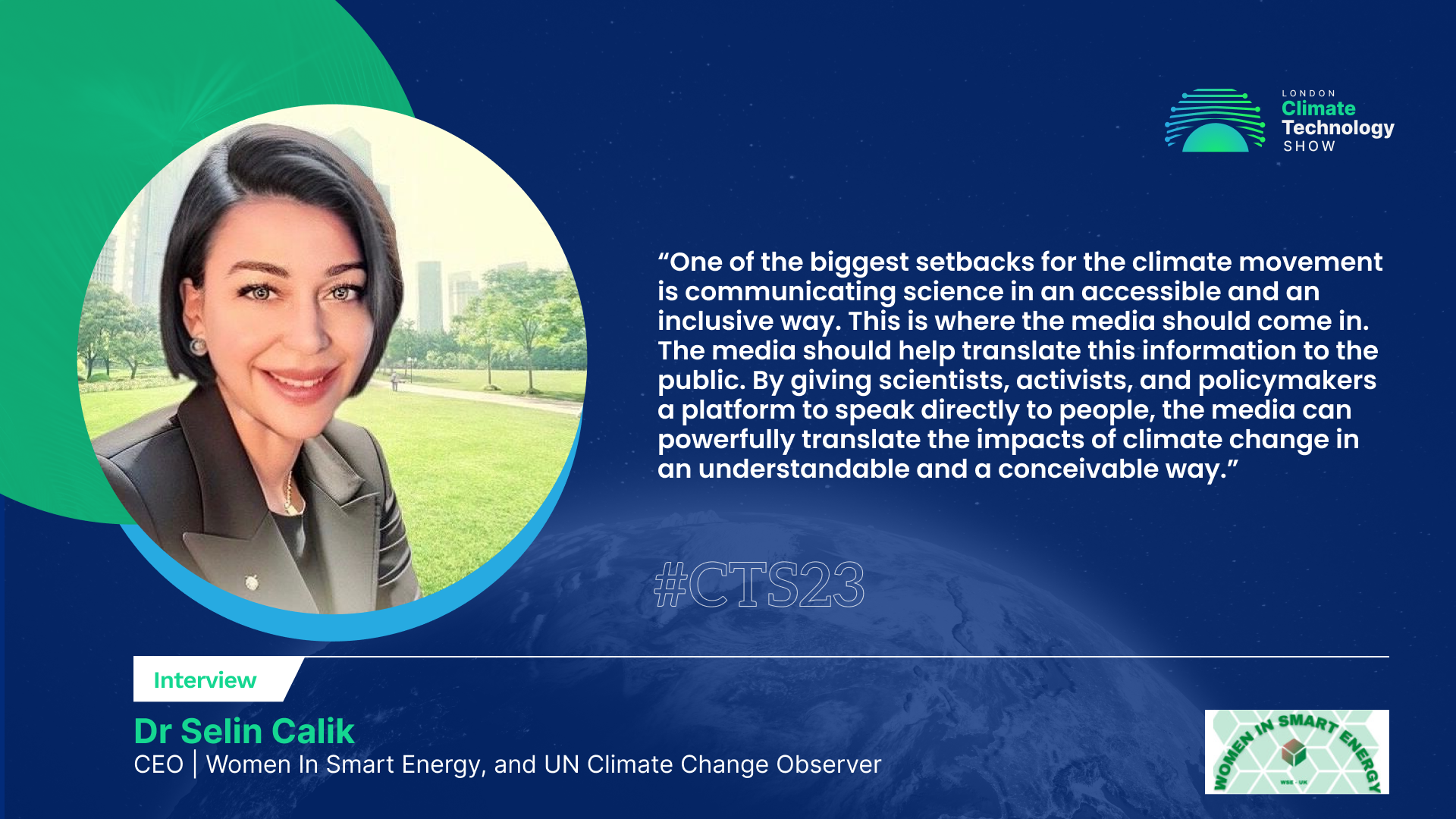Amidst the mounting environmental crises and their profound repercussions, the imperative for Climate Action becomes ever more pressing. Our recent Q&A session with Dr Selin Calik, CEO of Women in Smart Energy UK, a UN Climate Change Observer, and an author, delved into the current state of affairs and the essential steps required to address this critical issue, with a special emphasis on the media's role in drawing attention to it.
#CTS: What inspired you to explore the correlation between COVID-19 and Energy Transition, leading to your book The Renaissance of Smart Energy? Could you share some key insights from the book?
Dr Selin: The coronavirus pandemic has been acute, immediate and is killing rapidly, while climate change is taking place at a slower pace but is equally critical. As the two crises are clearly linked because of the scale and nature of the economic policy decisions being made, I decided to explore more and now those two will crucially affect climate outcomes far into the future. So, after putting climate change on the back burner, the pandemic has added to the urgency of addressing it.
#CTS: In your role as a UN Climate Change Observer since 2015, what pivotal shifts in global climate efforts have you witnessed, and how have they influenced your own perspectives on tackling climate change?
Dr Selin: Paris Climate Agreement is the pivotal shift in global climate efforts. The Paris Agreement is a legally binding international treaty on climate change. It was adopted by 196 Parties at the UN Climate Change Conference (COP21) in Paris, France, on 12 December 2015. It entered into force on 4 November 2016. By the help of this agreement, the countries commit to get rid of oil based economies and shift their technologies into renewable energy. This act is also important to apply carbon taxes. By 2050, we will see the positive feedback of this act.
#CTS: Could you share examples of different advisory projects you've undertaken for governments, universities, or other institutions regarding sustainability? How would you assess the outcome in terms of their effectiveness?
Dr Selin: In that regard, in 2015, I worked with the UN Agency campaign called “Brighter Lives for Refugees” to brighten the lives of thousands of refugees with the cooperation of HSBC and IKEA. We raised €10.8 million during the two-month initiative to improve the lives of 380,000 refugees in Bangladesh, Chad, Ethiopia and Jordan.
#CTS: How would you describe the influence of media on moulding public comprehension and engagement regarding the worldwide shift in energy, considering your reputation as a prominent global analyst who has been featured in esteemed news organisations?
Dr Selin: One of the biggest setbacks for the climate movement is communicating science in an accessible and inclusive way. This is where the media should come in. The media should help translate this information to the public. By giving scientists, activists, and policymakers a platform to speak directly to people, the media can powerfully translate the impacts of climate change in an understandable and a conceivable way. For instance, local news organisations can show the impact of climate change in its communities' own context. In this way, localised media can give its inhabitants a chance to work at grassroots and connect to citywide policymakers to see what they can do. Therefore, figures like Sir David Attenborough must be seen more in the media to combine science and human beings.
#CTS: How significant do you think are events like the London Climate Technology Show which aim to promote a global understanding of complete decarbonization?
Dr Selin: In the age of AI, people should be informed how AI can help us to tackle climate catastrophe. For example, AI can be used to optimise the recycling of materials used in clean energy systems, such as solar panels, wind turbines, and hydroelectric dams, by identifying the most valuable materials in these systems and then determining the most efficient recycling processes. CTS will help us to understand how to use technology to save our planet for the future generations and our kids.

